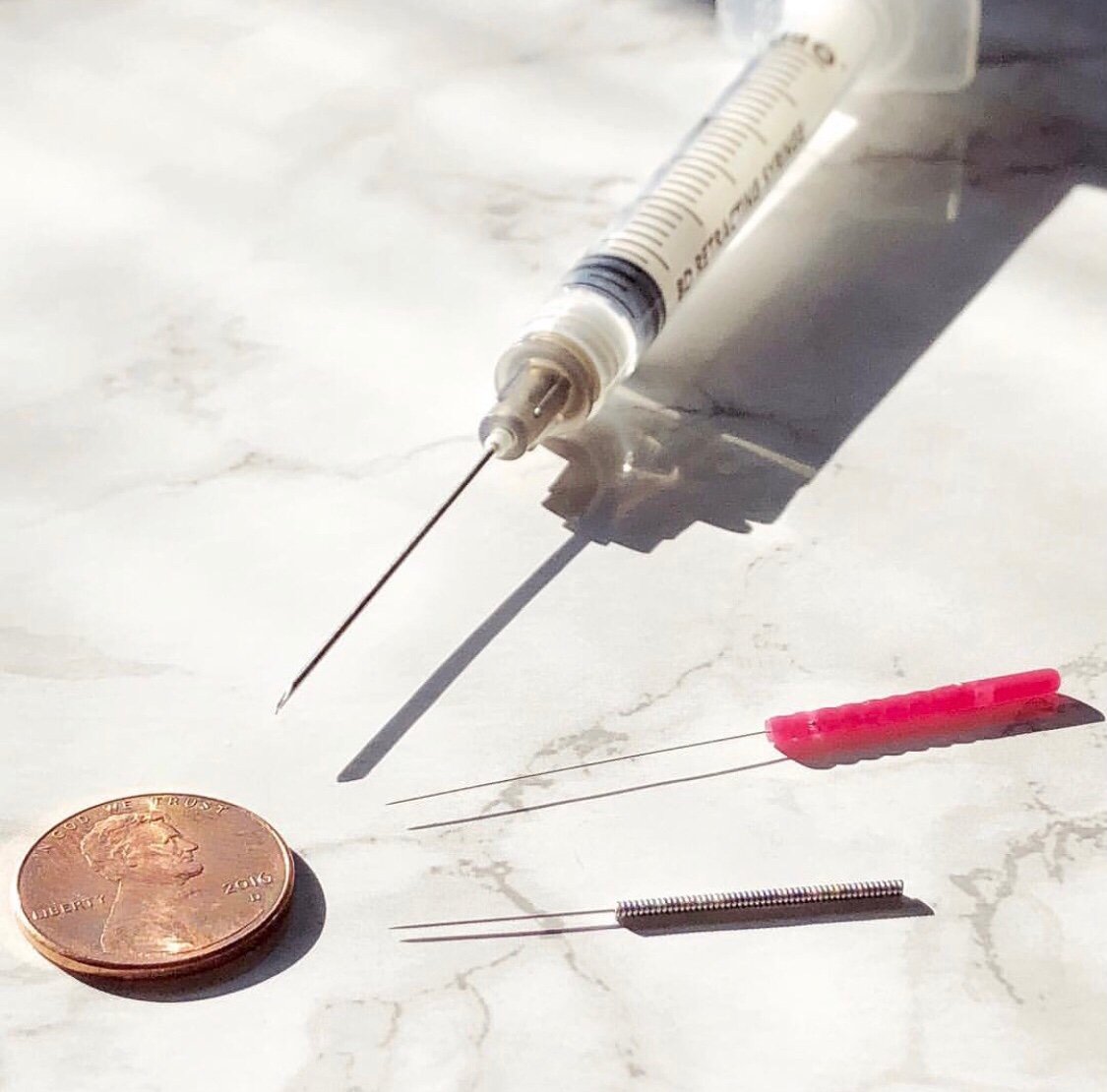Acupuncture for People Afraid of Needles
I’m an acupuncturist and I am afraid of needles.
It’s a funny statement to make, after all, acupuncture is a large part of what I do as a Traditional Chinese Medicine practitioner. Those of you with a fear of needles might want to call me on this statement. How could anyone with a true fear of needles ever consider a career based around them?! Let me explain myself…
I have vivid memories of going to the doctor as a kid—mostly for routine check ups and typical childhood illness. I remember liking my pediatrician. He had a calming voice and big glasses, and the nurses were kind too. I can’t say exactly where the fear of needles came from—probably the anticipation of pain. Being poked never felt good, and not even a lollipop or Batman bandage could make up for it. Eventually, the fear got so intense that I’d start crying on the drive to the doctor and completely panic in the office. Over time, any situation involving needles, like blood draws or even dental work, would send my nervous system into stress mode.
I wouldn’t say acupuncture was the first on my list when I was considering therapies for my own health problems as an adult.
Oh how things change! To be honest, I had never heard of acupuncture until I moved to Portland for college. I began seeing an MD for my health concerns and he recommended herbs and acupuncture. I had a good relationship with this doctor and had met a lot of friends with positive acupuncture experiences, so I was open to it despite still feeling apprehensive. Plus, I needed relief. Every test I had done kept showing that I was “normal” and “healthy” and yet I still felt unwell. I couldn’t take the debilitating migraines, menstrual irregularities and unexplained abdominal pain any longer.
I was nervous about my first acupuncture visit, but the acupuncturist was great about explaining everything she was doing. After being gently coached through the first needle insertion, I was pleasantly surprised that it was nothing like I had felt with vaccines or blood draws. The sensation wasn’t sharp or intense, but rather light, dull and slightly achy and sometimes I didn’t feel anything at all. It was still disconcerting to look down and see a needle in my leg. So I just kept my eyes closed. Once I received the rest of the needles and felt their effects, I was hooked.
It seems somewhat cliche to say that you just have to experience acupuncture to really “get it” but it’s true.
The experience and results are why so many needle-phobic people take the plunge. Consistent treatment often leads to improved health outcomes, especially when combined with other Chinese medicine modalities like herbs, bodywork, movement, and nutrition.
Still not convinced? Let me walk you through an acupuncture treatment for people afraid of needles.
Any new patient is going to get an explanation for how acupuncture works and what to expect. Then, we’ll dive into your medical intake. This is just friendly conversation where I get to know you and your concerns. We wont be jumping right in to the needles.
Next you’ll lay on the treatment table. The table isn’t like your doctor’s office with cold paper. It’s soft, cozy and warmed with a heat lamp. The ambiance is set for deep relaxation. Then I take your Chinese diagnostic pulse and view your tongue. These two steps are how we gather information about the body in Chinese medicine, helping us determine which points to use and which herbs to recommend. Then finally, the needles.
Size comparison of a hypodermic needle and two different sizes of filiform acupuncture needles.
Acupuncture needles are not hollow like a hypodermic needle used in blood draws and vaccinations. They are solid, pliable and the size I use for needle sensitive patients are about equivalent to a strand of hair. Let me put it this way, even babies and young children receive acupuncture comfortably. Some practitioners use thicker needles and have an intense trigger point style of needling designed to induce a strong sensation. Others use very thin needles like I described above. I am trained in both styles of needling and adapt to the needs of your body and condition.
Acupuncturist are experts in needling technique.
Its one of the reasons why we are licensed with the Oregon Medical Board— the same regulating body that oversees MDs. We are deeply trained in anatomy and because of this, we can work with you on the new sensations that come with acupuncture. Contrary to popular belief, acupuncture needles are not going into nerves. They are also not going directly into your arteries or veins. Acupuncture points are strategically placed, almost always within the belly of a muscle, allowing them to feel much more comfortable than a needle in your vein.
Once I truly realized how small acupuncture needles were and felt the relaxing sensations myself, I knew these were different needles I was dealing with. Would I say I don’t have a needle fear anymore? Not at all. I am still afraid of hypodermic needles in typical medical settings. I also still consider myself needle sensitive and only see Chinese medicine practitioners who practice gentle acupuncture.
For all the folks out there who want to try acupuncture and Chinese medicine but consider themselves sensitive, this medicine is still for you! Know that there are practitioners like myself who understand your concerns and want to gently introduce you to this miraculous medicine that has helped people for thousands of years.
If you have any questions about gentle acupuncture feel free to send me an email, Id love to talk!
Kecia Fox is a Licensed acupuncturist and Traditional Chinese Medicine practitioner at Well Forest Acupuncture in Portland, Oregon, specializing in holistic wellness and chronic pain and stress. Book an appointment online.


